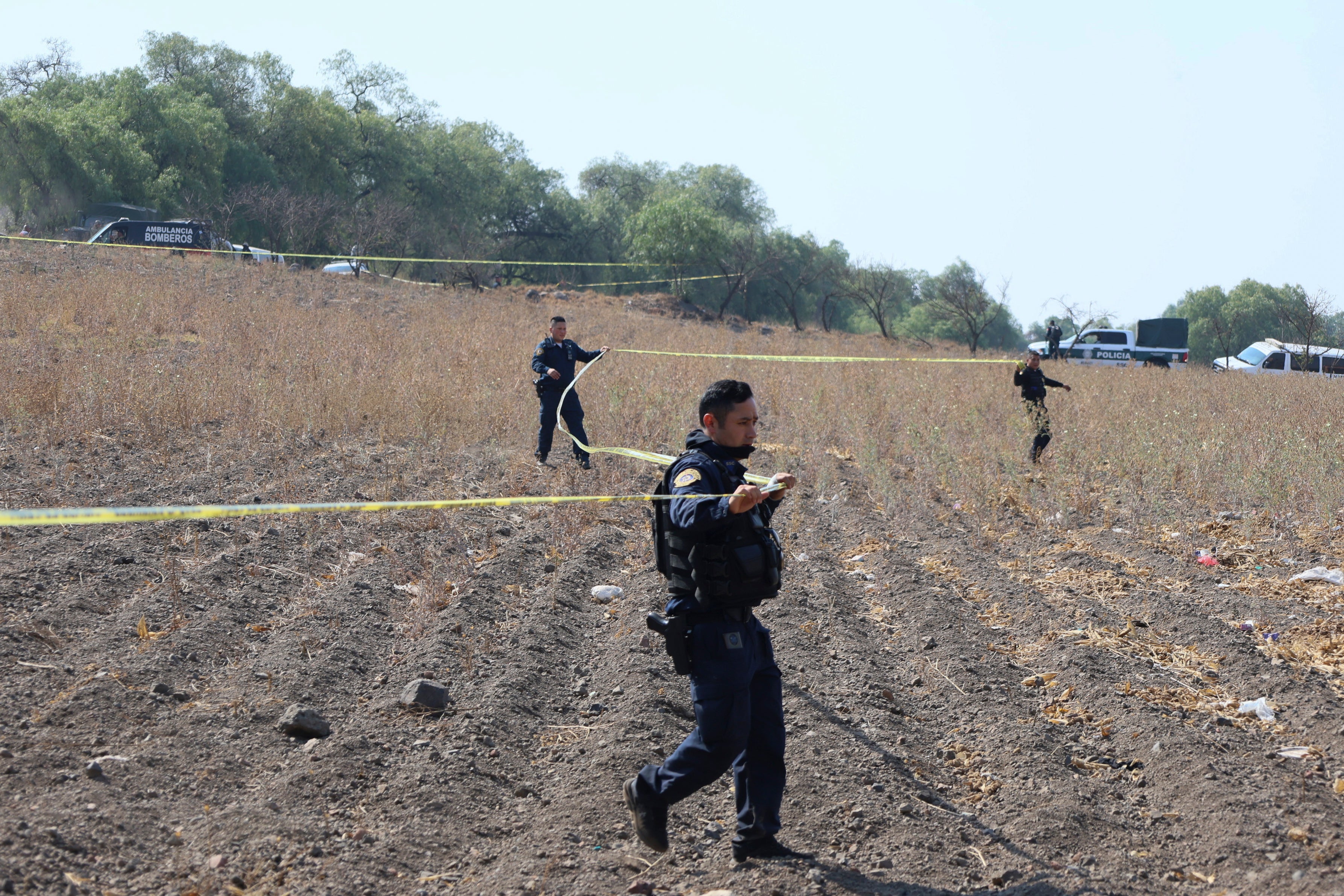Mexican volunteer searchers say they've found a clandestine crematorium in Mexico City
Volunteer searchers say they’ve found a clandestine crematorium on the edge of Mexico City

Your support helps us to tell the story
From reproductive rights to climate change to Big Tech, The Independent is on the ground when the story is developing. Whether it's investigating the financials of Elon Musk's pro-Trump PAC or producing our latest documentary, 'The A Word', which shines a light on the American women fighting for reproductive rights, we know how important it is to parse out the facts from the messaging.
At such a critical moment in US history, we need reporters on the ground. Your donation allows us to keep sending journalists to speak to both sides of the story.
The Independent is trusted by Americans across the entire political spectrum. And unlike many other quality news outlets, we choose not to lock Americans out of our reporting and analysis with paywalls. We believe quality journalism should be available to everyone, paid for by those who can afford it.
Your support makes all the difference.Volunteer searchers said they have found a clandestine crematorium on the edge of Mexico City.
It's the first time in recent memory that anyone claimed to have found such a body disposal site in the capital. In northern Mexico, drug cartels often use drums filled with diesel or caustic substances to burn or dissolve bodies, but up to now there has been little evidence of that in Mexico City.
Ceci Flores, a leader of one of the groups of so-called “searching mothers” from northern Mexico, announced on social media late Tuesday her team had found bones around a charred pit on the outskirts of the city.
Flores said the team had found bones, clandestine burial pits and ID cards at the site in a rural area of the city’s south side.
Mexico City prosecutors issued a statement saying they were investigating the find to determine the nature of the remains found, and whether they were human. The prosecutors office said it was also reviewing security camera footage and looking for possible witnesses.
The discovery, if confirmed, would be a political embarrassment for the ruling party, which has long governed Mexico City and claims the capital has been spared much of the drug cartel violence that afflicts other parts of the country.
That is largely due to the city's dense population, notoriously snarled traffic, extensive security camera network and large police force, which presumably make it hard for criminals to act in the same way they do in provincial areas.
But while the city is home to 9 million residents and the greater metropolitan area holds around 20 million, large parts of the south side are still a mix of farms, woods and mountains. In those areas, it is not unheard of for criminals to dump the bodies of kidnapping victim, but they seldom burn or bury them.
Volunteer searchers like Flores often conduct their own investigations, sometimes relying on tips from former criminals, because the government has been unable to help . The searchers have been angered by a government campaign to ‘find’ missing people by checking their last known address, to see if they have returned home without advising authorities.
Activists claim that is just an attempt to reduce the politically embarrassing figures on the missing.
The searchers, mostly the mothers of the disappeared, usually aren’t trying to convict anyone for their relatives’ abductions. They say they just want to find their remains.
The Mexican government has spent little on looking for the missing. Volunteers must stand in for nonexistent official search teams in the hunt for clandestine graves where cartels hide their victims. The government hasn’t adequately funded or implemented a genetic database to help identify the remains found.
Victims’ relatives rely on anonymous tips, sometimes from former cartel gunmen, to find suspected body-dumping sites. They plunge long steel rods into the earth to detect the scent of death.
If they find something, the most authorities will do is send a police and forensics team to retrieve the remains, which in most cases are never identified. But such systematic searches have been rare in Mexico City.
At least seven of the activists searching for some of Mexico’s more than 100,000 missing people have been killed since 2021.